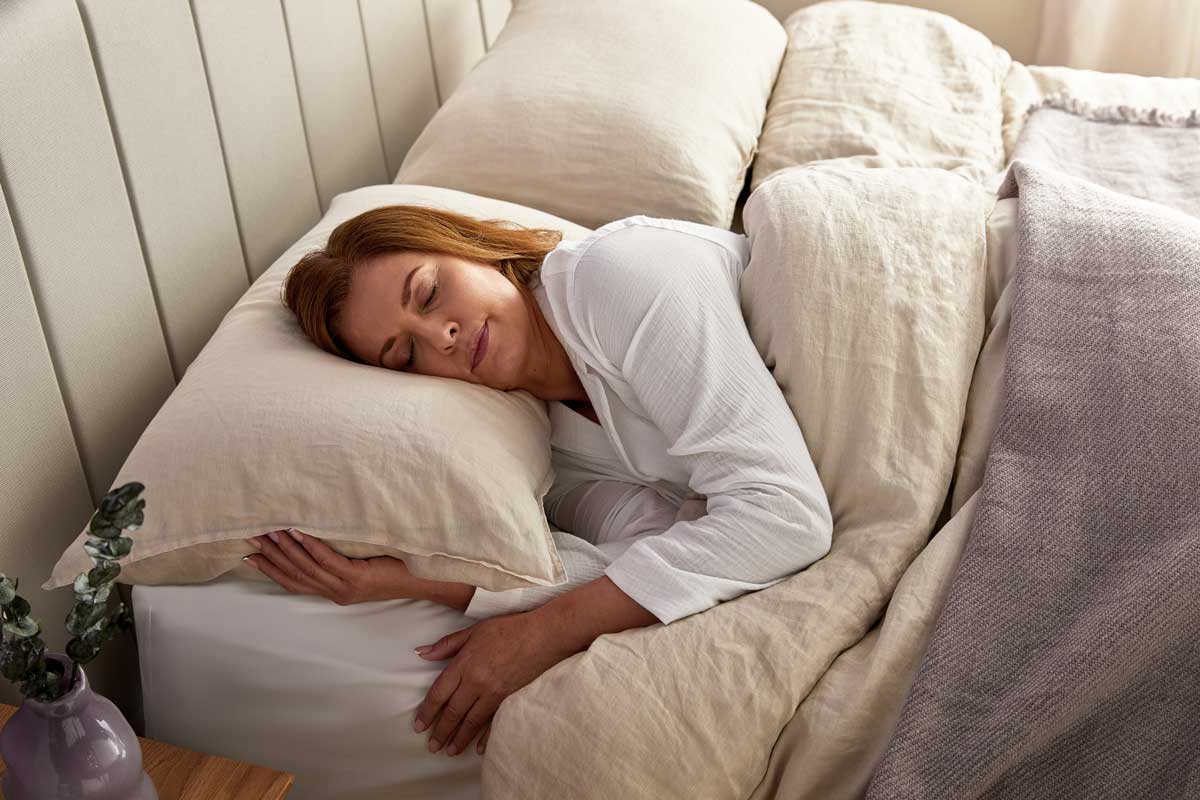
how many hours of sleep do you really need?
Sleep is essential at any age and is vital for restoring both body and mind, but just how much sleep do you really need to function at your best and what happens if you don’t get enough shut-eye? From the recommended number of hours worth of sleep each age group should be getting every night to the consequences of lost sleep, plus some myths surrounding sleep time debunked, this blog may make you think twice about skimping on important sleep.
how much sleep do you need by age?
Because our bodies needs change as we age, the amount of sleep you need varies by age. During deep sleep (slow wave sleep) growth hormones are released, hence longer sleep times for growing babies and children. Most adults require around 7-9 hours each night, however some people need more sleep, as many as 10 hours, while others require less and can get by with as little as 6 hours. The number of hours spent asleep is not necessarily the most important factor when it comes to feeling rested, the focus should be more on sleep quality, however as a guide, here's the recommended amount of sleep each age group should be getting per night:
-
1-12 months old - 14-15 hours
-
1-3 years old - 12-14 hours
-
3-6 years old - 10-12 hours
-
7-12 years old - 10-11 hours
-
12-18 years old - 8-9 hours
-
18-65 years old - 7-9 hours
-
65+ years old - 7-8 hours
what happens if you lose sleep?
We all know how tired and irritable you can feel the next day following a poor night’s sleep, and the odd night here and there without enough sleep won’t harm your health in the long-term. However, losing too much sleep over time can soon take a toll on both mental and physical health, afterall good quality sleep is important for a healthy mind and body.
There are many consequences of too much lost sleep, including feeling fatigued, lack of focus, brain fog, having a short temper and you may find it harder to make decisions. Losing sleep also increases the risk of injury and accidents at home and work, so it’s clear to see just how important it is to get a decent amount of shut-eye each night and of good quality too, in order for you to function at your best.
While the symptoms of a bad night’s sleep are certainly unpleasant, a lifetime of poor sleep can lead to serious conditions including diabetes & heart disease. Maintaining a healthy sleep routine is essential to your long term health.
can you make up for lost sleep?
We’ve all had the thought, ‘if I stay up late tonight then I'll just make up for it over the weekend it’s no big deal’, but can you really make up for lost sleep? The answer? Well it depends upon how much sleep you’ve lost and over how many nights. You can possibly make up for some lost sleep the next night, however it may not all be recovered and the quality of your sleep during recovery will be affected.
During recovery sleep, our sleep cycle changes with more time spent in deep, slow-wave sleep. Since this will mean less time spent in the other sleep stages you may not feel fully refreshed the following day.
The first few hours of lost sleep, around 5 hours, can be made up for say on a weekend, but if the lost number of hours is significant then you won’t make it all back up. This also depends greatly on you. Studies have shown that our ability to recover from a period of lost sleep can depend greatly on the individual.
To help catch up on lost sleep, you could aim to go to bed a little earlier each night and try to get an hour or two of extra sleep. It’s best to go to bed when you feel tired and allow your body to naturally wake you in the morning, without the use of an alarm clock! It’s fine to wake up a little later, within one hour of your normal wake time, but not at a drastically different time, as this can throw off your circadian rhythm for the day. You could also take well-timed naps - in the afternoon for around 10-20 minutes is ideal. Napping too close to bedtime is not a good idea as it can disrupt your sleep during the night, starting a pattern of poor sleep.
myths around sleep time
It’s a fact that good quality sleep is vital for our health, however, over time a variety of myths have come about surrounding how much sleep the average person actually needs. So, let’s clear some of them up and separate fact from fiction.
We all need 8 hours of sleep - each one of us is different and so there is no one-size fits all when it comes to the number of hours we should spend asleep each night. Sleep duration does vary by age and 7-9 hours for adults is an appropriate amount. If you are waking refreshed, alert, and are generally not sleepy throughout the day then you are getting enough sleep.
Older people need less sleep - according to the National Institution of Aging, it’s a myth that older adults don’t require as much sleep [reference - 10 myths about aging]. While it’s true that older people can have a harder time getting the amount of sleep they need, it doesn’t mean that they need less.
As we age our sleep cycles change. Decreased deep sleep in our more mature years can lead to longer sleep times to compensate and feel refreshed. Spending more time in the lighter sleep stages, older people are more easily woken, and may struggle to sleep continuously.
You can train your body to need less sleep - there’s a well-known myth that you can train your body to need less than 7-9 hours of sleep, and sadly, there’s no truth in this whatsoever. If you get fewer than 6 hours of sleep each night, it’s likely that you’re not functioning at your best and some people say they may feel fine, but this is most likely because they are used to getting by on less sleep. The effects of sleep deprivation are real and thinking you can train yourself to need less sleep is not something that you should even consider.
More sleep is always better - sleeping for more than 9 nine hours a night on a regular basis may do more harm than good. Researchers have found a link between longer sleep durations and poorer health, for example, one study followed 276 adults over 6 years, which concluded that there’s an increased risk of developing obesity for both short and long duration sleepers compared to average-duration sleepers. [Reference - association between weight gain and sleep]
Daytime naps are bad - if you’ve lost out on sleep from previous nights, taking a nap is a good way to claim some of that lost sleep back. A nap of no longer than 20 minutes gives the body enough time to recharge and can even improve your mood too. In fact, research has shown that people who nap experienced an improvement in the performance of tasks such as reaction time and logical reasoning. [Reference - Benefits of napping]
So, if you’re struggling with sleep and worried you’re not getting enough shut-eye, it is possible to recover some of those lost hours. To ensure you sleep better and for longer, make sure to stick to a regular bedtime routine and create the best possible sleep environment and you’ll soon be getting the sleep you need to feel refreshed and avoid daytime tiredness.




